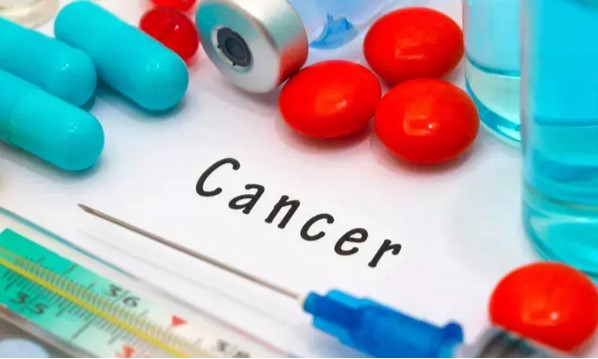Cancer Drug Discovered After Researcher’s Accidental Encounter with Malaria Medication
While examining the chemical structure of a well-known antimalarial drug, experienced researcher Renato Aguilera speculated that it might also be effective against cancer — and he was right. His groundbreaking research, along with a patent and a pharmaceutical company, now supports his discovery.
Renato Aguilera's journey began when he moved from Mexico to the United States at the age of 15, speaking little to no English. Determined to succeed, he mastered the language and went on to earn a bachelor's and master's degree in microbiology from the University of Texas at El Paso (UTEP), followed by a PhD from the University of California at Berkeley. Today, he is recognized as Dr. Renato Aguilera.

Figure 1. Effective Cancer Treatment.
Since then, Aguilera has amassed vast expertise in immunology, molecular and cell biology, and cancer research. In 2017, his knowledge took an unexpected turn when he attended a seminar at UTEP discussing an antimalarial drug called pyronaridine (PND). Figure 1 shows effective cancer treatment.
Reflecting on that career-defining moment, Aguilera quoted Louis Pasteur, saying, “Chance favors the prepared mind.” Upon closely examining the drug’s structure, he realized its potential to target cancer cells [1]. Years of dedicated research eventually led to a patent, bringing the drug one step closer to being used for patient treatment.
After recognizing pyronaridine's potential, Aguilera teamed up with his then-doctoral student, now PhD holder, Paulina Villanueva, along with other researchers, to investigate the drug's effect on cancer cells. Their laboratory tests revealed that pyronaridine effectively slowed cancer growth and activated the programmed cell death (apoptosis) pathway in various cancer types, including lung, breast, ovarian, lymphoma, melanoma, and multiple myeloma. Notably, the drug left healthy cells largely unaffected.
Their groundbreaking findings were published in PLOS One in 2018, further supporting Aguilera’s initial observation of the drug’s promising anti-cancer properties.
“With pyronaridine, we’ve achieved a powerful combination: slowed cancer cell growth, activation of programmed cell death, and minimal harm to healthy cells,” Aguilera stated. “In the future, this drug could potentially be paired with immunotherapy to accelerate cancer cell destruction.”
As the Director of the Border Biomedical Research Center’s (BBRC) Cellular Characterization and Biorepository (CCB) at UTEP’s College of Science, Aguilera led high-throughput screening to identify drugs capable of killing cancer cells [2]. But what motivated his focus on cancer research? During a 2023 interview with Dr. Keith Pannell and Miguel Morales on KTEP, UTEP’s radio station, Aguilera shared his personal drive:
“When people ask me, ‘Why are you doing this?’ my response is, ‘Because I believe cancer is likely what will take my life, and I want to contribute to finding drugs that could either save me or help my friends.’”
Driven by this mission, Aguilera pursued and secured a patent for the repurposed use of pyronaridine in collaboration with Armaceutica, Inc., a pharmaceutical company dedicated to developing cancer treatments, where he now serves as Chief Scientific Officer.
His former research partner, Dr. Paulina Villanueva, who played a key role in the study and is now a postdoctoral scholar at the NanoScience Technology Center at the University of Central Florida, expressed her pride in the breakthrough.
“It’s amazing to see the hard work behind this research materialize,” Villanueva said. “Research always opens the door to endless possibilities. While personalized medicine doesn’t work the same for everyone, pyronaridine could offer hope for some. Securing the patent is a huge achievement, but the journey isn’t over — there’s still much more work to do.”
Reference:
- https://newatlas.com/cancer/pyronaridine-cancer-treatment/
- https://www.utep.edu/newsfeed/2025/march/common-malaria-drug-repurposed-to-fight-cancer.html
Cite this article:
Keerthana S(2025),Cancer Drug Discovered After Researcher’s Accidental Encounter with Malaria Medication, AnaTechMaz, pp.1106.

